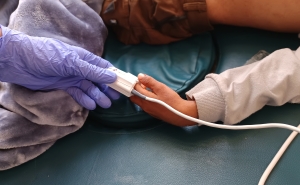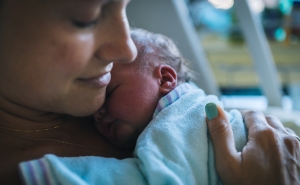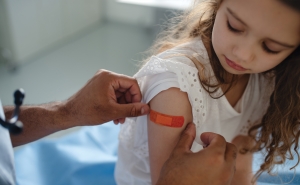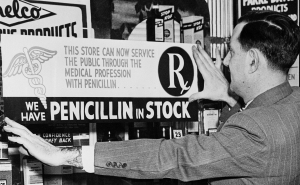A COVID-19 Q&A With Dr. Amesh Adalja
Amesh Adalja, MD, responds to concerns about the delta variant, breakthrough infections, high-risk settings, and more.
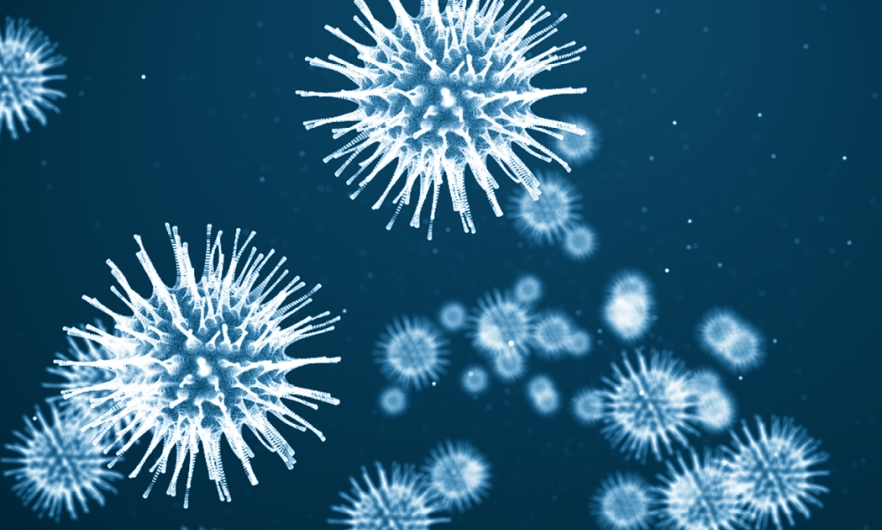
A Q&A with Amesh Adalja
COVID remains a central part of our lives, and as case counts rise again, so do concerns.
In this Q&A, adapted from the August 20 episode of Public Health On Call, Amesh Adalja, MD, of the Johns Hopkins Center for Health Security responds to COVID-19 questions submitted to publichealthquestion@jhu.edu.
I am fully vaccinated with the Moderna vaccine. If I catch the delta variant, will I acquire additional immunity?
It's likely that when you get a natural infection, you're going to be exposed to proteins of the virus that are not contained in the vaccine. So, you likely will get a boost to your immunity, and maybe some different elements of your immunity will get stimulated with the natural infection.
I do think that those breakthrough infections probably leave a mark on your immune system, one that probably gives you protection that's not necessarily contained in the vaccine. It might not necessarily be better than what's in the vaccine, but it's probably different immunity because different proteins of the virus are seen by your immune system.
Can the same awful things that happen with a regular COVID infection in an unvaccinated person also happen with breakthrough infections, like long COVID or, potentially, an increased risk for heart attacks and strokes because of the changes to the vascular walls that might result?
Generally, the answer is no. That's the whole goal of the vaccines: not to prevent every breakthrough infection, but to make breakthrough infections something that's mild, something that's not really clinically that significant, and that's what we're seeing.
That doesn't mean that there haven't been breakthrough infections that are severe. I've taken care of three patients in the hospital with breakthrough infections. But in general, breakthrough infections are not associated with the same complications you would get with a natural infection. This is why vaccination is so important—it really removes the ability of the virus to cause all those serious problems.
Is there any evidence to suggest that COVID-19 can trigger adult-onset asthma?
There's no specific evidence that COVID-19 can trigger adult-onset asthma specifically, but people with respiratory infections of all sorts can develop reactive airway disease, where the airways in your lungs go into spasm. They may have symptoms that are similar to [those of] asthma, such as some wheezing that might occur post-infection.
Asthma is an autoimmune condition, and it can get triggered by certain infections. It would be important to see your doctor and get formal testing if you think you might have asthma.
When a person breathes in a droplet containing the SARS-CoV-2 virus, how long does it take for this virus to start binding to receptors in the nose and throat? Is it seconds, minutes, hours, or days?
That's a hard question. I think it's probably going to fall within minutes to hours. It's probably not instantaneous. I'm sure in a petri dish or in a laboratory, it can be done in seconds. But in your human body, it's a little bit more complicated because there's mucus. There are little hairs on your cells that are constantly beating, trying to remove debris like viruses. So it's hard to know exactly what the time course is down to the precise unit of measurement.
If I get vaccinated, will I give my infant child an increased risk of getting sick from a COVID variant?
No. The best way to protect your infant (who's too young to be vaccinated) is for you to be vaccinated. That makes it much less likely that you will bring COVID-19—in any of its variant forms—into your household.
My daughter got a COVID-19 vaccine while she was pregnant. She's now breastfeeding her new baby and wants to know if she gives some breast milk to her three-year-old, will that child also get antibodies?
Yes, they would. Anybody that drinks or consumes that breast milk would get antibodies.
In a previous Q&A about the safety of vaccines and breastfeeding Ruth Karron, MD, and Ruth Faden, PhD, MPH, state that while there are publications that have looked at antibodies in breast milk from vaccinated individuals and have been able to detect those antibodies, people who are nursing and are vaccinated should not assume that their babies are somehow as protected as if they were vaccinated directly.
Do masks get less effective the longer they're worn? I'm in an office for eight hours a day. Should I bring more than one mask?
It depends upon the type of mask you're wearing. Most people are wearing hospital-style surgical masks. Surgeons wear those types of masks through surgery, and they are intended for single use. I would say wearing it for several hours is fine.
Some of the cloth masks that have multiple layers can be worn without wearing out over the day or even over days.
I'm vaccinated, but my co-worker, who works only three feet away from me, is not. If my employer lifts all restrictions, am I at risk of getting sick from her?
It's good that you're vaccinated because even if you were to get a breakthrough infection, it's unlikely that it would be severe. If you have some immunosuppressing conditions or you're really worried about getting a breakthrough infection, you can wear a mask yourself in that situation.
This is going to be dictated by a person's risk tolerance. Breakthrough infections are going to happen. It's going to be impossible to completely avoid if people start to interact with each other.
I am a middle school chorus teacher. I work in an area where parents are done with masking. I think I will be expected to teach multiple chorus classes of 20 to 50 kids indoors. I'd love some expert advice on how I should run my class.
Number one, you yourself should be vaccinated. Hopefully, as many of your chorus members as possible can be vaccinated, if they are 12 or older. And hopefully, we'll get approval for younger age groups, so that makes it safer. If you could make it outdoors, that would make it safer. If you can't, consider having class in a place where you can open windows and increase ventilation.
There are a lot more particles generated when people sing, so we have to be more careful there. The point is, a breakthrough infection is likely in that type of high-risk situation, but if you’re vaccinated the infection is also likely to be mild.
Maybe you can’t have them wear masks, but is it possible to have them wear face shields? Are you able to put up plexiglass barriers, especially if there are unvaccinated individuals in class?
My parents say they will not get the vaccines because they have no comorbidities, and there will always be some variant, so eventually, we will all get it anyway. What do you think of this way of thinking about it?
It might be true that we will all get it. It's an efficiently spread respiratory virus that's now become established in the human population. Yes, there are going to be more variants, but our vaccines are designed to stop serious disease, hospitalization, and death, to make any breakthrough infection very mild.
The best and easiest way to take out all uncertainty that COVID doesn't disrupt your life—even if everybody is going to get it—is to get vaccinated. If you're not vaccinated, it's a little bit of Russian roulette as you get older whether you're going to have a severe case, whether you're going to have a mild case, whether you're going to end up with long COVID, whether you're going to take time off from work, whether you're going to have to tell all your friends and contacts that they've been exposed. All of that can be avoided with a simple vaccine.
Amesh Adalja, MD, is a senior scholar at the Center for Health Security and an adjunct professor in Environmental Health and Engineering. He is also an affiliate of the Johns Hopkins Center for Global Health.

